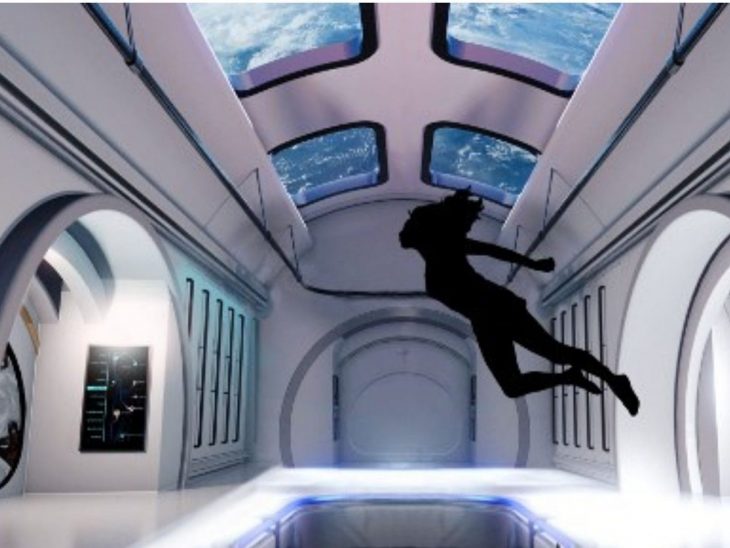Fighting a highly competitive battle with SpaceX, Jeff Bezos led Blue Origin has plans to outpace Elon Musk with the development of a Space Station in low Earth orbit. Dubbed Orbital Reef, the company aims to use the outpost in microgravity to develop “an ecosystem and business model for the future.”
The company said that Orbital Reef will be operated as a “mixed-use business park” in space. The station will be used for research, industrial, international, and commercial customers and Blue Origin will provide space transportation, logistics, habitation, equipment accommodation, and operations.
“Orbital Reef will provide the essential infrastructure needed to scale economic activity and open new markets in space. Reusable space transportation and smart design, accompanied by advanced automation and logistics, will minimise cost and complexity for both traditional space operators and new arrivals, allowing the widest range of users to pursue their goals,” the company said in a statement.
A GLOBAL COOPERATION
The Space Station will be designed and built by global cooperation among companies. Apart from Blue Origin, which will provide utility systems, large-diameter core modules, and reusable heavy-lift New Glenn launch system, Sierra Space will design the Large Integrated Flexible Environment (LIFE) module, node module, and runway landing Dream Chaser space plane for crew and cargo transportation.
Boeing will design and build the science module for the station along with ensuring station operations, maintenance engineering, and providing the Starliner crew spacecraft. Redwire Space will facilitate microgravity research, development, and manufacturing; payload operations and deployable structures. While Genesis Engineering Solutions will design and build a single-person spacecraft for routine operations and tourist excursions, Arizona State University has come on board to lead a global consortium of universities providing research advisory services and public outreach.
“For over sixty years, Nasa and other space agencies have developed orbital space flight and space habitation, setting us up for commercial business to take off in this decade. We will expand access, lower the cost, and provide all the services and amenities needed to normalize space flight,” Blue Origin said in a statement.
COULD IT BE AN ALTERNATIVE?
One of the biggest challenges facing the US beyond Earth is the growing dominance of China in the space sector. With Beijing already advancing in interplanetary missions, its under-construction Space Station is a cause of concern for America, which has so far dominated the arena. With the International Space Station (ISS) ageing and in its last leg of operations, Nasa could look at Blue Origin’s proposed plans.
While the second rotational crew from Beijing is already on the under-construction station, Russia too has expressed its desire to construct a station in microgravity. Moscow, which is part of the ISS, has threatened to walk out amid straining relations on the ground. The Russian space agency chief has said that Roscosmos plans to create a Russian orbital service station with an efficiency higher than that of the ISS.
Moscow had warned the United States to lift sanctions imposed on the space sector or else it will withdraw from the ISS. Russia has been deliberating over withdrawing from the ISS, which is reaching its operational deadline, by 2025. The Orbital Reef could be looked at as an alternative by the US government, to continue its research as it plans to go beyond the orbit of the Moon and venture into Mars.
SPACE TOURISM COULD FUND EXPLORATION
As humans vie to become an interplanetary species, the budget required to develop and proceed forward is staggering. Space tourism, however, has emerged as one such funding experiment that could fill the coffers of private companies looking to develop such systems, test flights and liftoff to leave Earth’s orbital pull.
Several companies, including SpaceX and Blue Origin have launched private flights to the edge of space to fund enterprises like Elon Musk’s Starship project. In July, Blue Origin had a successful debut space tourism flight, with Bezos and three others aboard. Earlier this month, 90-year-old US actor William Shatner – Captain James Kirk of “Star Trek” fame – became the oldest person in space aboard a rocketship flown by Blue Origin.
While the money generated from these flights remain confidential, these missions could fuel further exploration. The Orbital Reef could emerge as a source of big checks for Blue Origin offering a unique view of the planet while living and working outside of it.







Leave a Reply